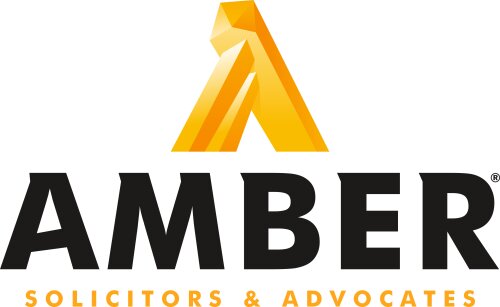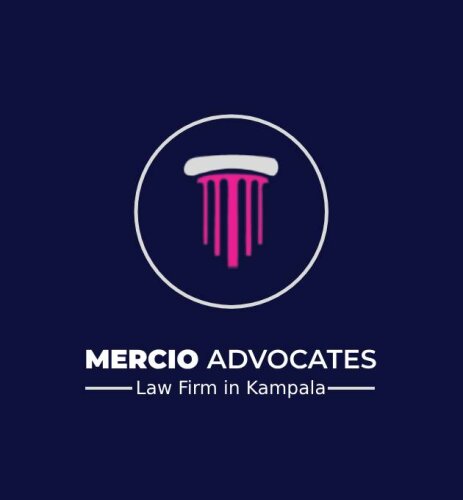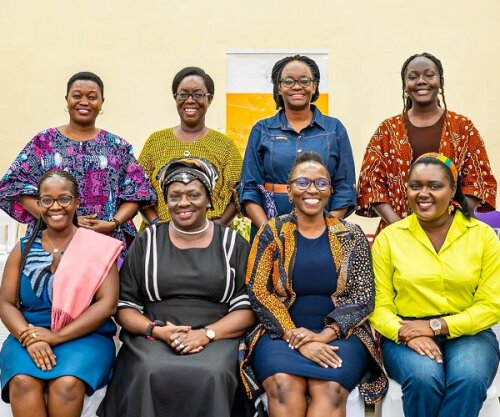Best Class Action Lawyers in Uganda
Share your needs with us, get contacted by law firms.
Free. Takes 2 min.
Or refine your search by selecting a city:
List of the best lawyers in Uganda
About Class Action Law in Uganda
Class action lawsuits in Uganda provide a legal mechanism for a group of people to collectively bring a claim to court. This is particularly significant in situations where multiple individuals have suffered similar injuries or damages due to the actions of a company, institution, or other entity. Class actions are intended to enhance judicial efficiency by consolidating numerous claims into a single lawsuit, which can also help claimants share litigation expenses and avoid inconsistent verdicts.
Why You May Need a Lawyer
Legal representation is often crucial in class action lawsuits due to the complex nature of these cases. Here are some common situations where you may require a lawyer:
- Product Liability: If a defective product has caused injury or financial loss to a group of people, a class action may be necessary.
- Consumer Protection: Unfair business practices affecting many individuals can warrant a class action.
- Environmental Claims: When environmental harm impacts a community, such as pollution or hazardous waste, a class action can seek remediation and damages.
- Employment Issues: Violations of labor laws affecting a group of employees, like wage theft or discrimination, can be effectively addressed through class actions.
A lawyer will help analyze the case, determine if class action is a suitable course, and effectively manage its intricate proceedings.
Local Laws Overview
In Uganda, class actions are governed by principles within the civil procedure rules, as the concept of class actions is not yet extensively codified in Ugandan statutes. The following key aspects are relevant:
- Representative Suits: These are allowed under certain conditions where parties share common interest or grievances.
- Judicial Precedents: Past decisions serve as a crucial guide, given the absence of detailed statutory provisions.
- Individual and Group Interests: A balance must be struck between the interests of the individual parties involved and the efficiency of handling as a group.
- Notice and Participation: Proper notification and opportunities for participation or objection by class members are essential.
Frequently Asked Questions
What is a class action lawsuit?
A class action lawsuit is a legal action where a group of people collectively bring a claim to court, generally due to similar grievances or injuries caused by the same entity.
Can any lawyer handle a class action lawsuit in Uganda?
Not all lawyers specialize in class actions. It's important to hire a lawyer with specific experience and expertise in handling such cases for effective representation.
How do I know if I am eligible to join a class action?
Eligibility depends on the specifics of the class action. Generally, you must share similar legal grievances as outlined in the initial lawsuit.
What are the costs involved in filing a class action lawsuit?
Costs can vary significantly and may include filing fees, legal representation charges, and other court-related expenses. In some cases, lawyers may work on a contingency fee basis.
What happens if the class action is successful?
If successful, the court may award damages or injunctive relief. Damages are usually distributed among class members based on established criteria.
Can I opt out of a class action lawsuit?
Yes, class members generally have the right to opt out of a class action if they prefer to pursue individual litigation or do not wish to be part of the lawsuit.
How long do class action lawsuits take?
The duration can vary widely; some cases may take several years due to complex legal processes and the gathering of substantial evidence.
What if I don’t receive a notice about the class action?
Efforts are usually made to notify all potential class members. However, if you suspect you should be included in a class action, consult a lawyer or the court handling the case.
Who decides if a case qualifies as a class action?
The court ultimately decides if a lawsuit can proceed as a class action, based on criteria such as commonality of claims and numerosity of plaintiffs.
Are class action settlements public record?
Typically, the details of class action settlements become public record unless sealed by court order for specific reasons.
Additional Resources
For further information or assistance, consider contacting the following resources:
- Uganda Law Society: Offers legal aid and resources for finding qualified lawyers.
- Legal Aid Service Providers Network (LASPNET): Connects individuals with legal aid services across Uganda.
- Justice Centres Uganda: Provides free legal services to those who cannot afford them.
- Ministry of Justice and Constitutional Affairs: Offers guidance on filing legal grievances and understanding legal processes in Uganda.
Next Steps
If you need legal assistance in a class action, consider these steps:
- Consult with a Specialist: Seek a lawyer with experience in class actions to evaluate your case and discuss potential legal strategies.
- Gather Documentation: Assemble relevant documents, evidence, and a list of potential class members to support your case.
- Understand Your Rights: Familiarize yourself with your legal rights and options within the context of a class action.
- Consider Financial Implications: Evaluate potential costs and discuss fee arrangements with your lawyer, such as contingency fees.
- Communicate Actively: Maintain effective communication with your lawyer and respond promptly to any requests for information or action.
With the right knowledge and legal support, you can effectively navigate the complexities of class action lawsuits in Uganda.
Lawzana helps you find the best lawyers and law firms in Uganda through a curated and pre-screened list of qualified legal professionals. Our platform offers rankings and detailed profiles of attorneys and law firms, allowing you to compare based on practice areas, including Class Action, experience, and client feedback.
Each profile includes a description of the firm's areas of practice, client reviews, team members and partners, year of establishment, spoken languages, office locations, contact information, social media presence, and any published articles or resources. Most firms on our platform speak English and are experienced in both local and international legal matters.
Get a quote from top-rated law firms in Uganda — quickly, securely, and without unnecessary hassle.
Disclaimer:
The information provided on this page is for general informational purposes only and does not constitute legal advice. While we strive to ensure the accuracy and relevance of the content, legal information may change over time, and interpretations of the law can vary. You should always consult with a qualified legal professional for advice specific to your situation.
We disclaim all liability for actions taken or not taken based on the content of this page. If you believe any information is incorrect or outdated, please contact us, and we will review and update it where appropriate.
Browse class action law firms by city in Uganda
Refine your search by selecting a city.

















